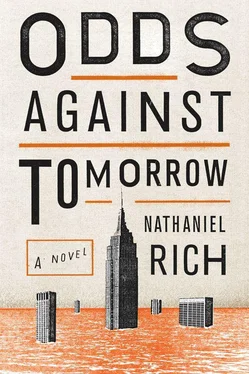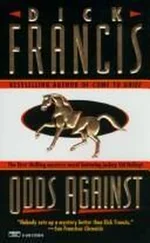PSYCHO!
WHERE DO YOU GO WHEN YOU SLEEP?
The canoe rested on a podium in the middle of the gallery floor. The hull was painted in a kind of camouflage, only the colors, instead of being greens and browns, were a nightmarish swirl of orange and cerulean and bloodred.
As soon as Mitchell stepped into the refrigerated art gallery he was approached by a delicate young man with pointed elbows, a too-clever smile, and glasses with translucent rims. The man closed the distance rapidly; he held a damp Dixie cup of ice water in his outstretched hand. Mitchell took the water gratefully, winced when the ice touched his gums. Before Mitchell could understand exactly where he was or what was happening, the attendent launched into a prepared speech. The current exhibition, he explained, featured the work of a group of young artists from the eastern Canadian provinces. These artists aimed to combine sixties psychedelic art with the folkloric art of First Nations tribes. The New Psychedelia School, they called themselves. “Rationality has made a mess of this world,” read the artist’s statement, posted on the wall. “We want to trust our impulses more.” Mitchell knew he had heard it somewhere before. The attendent indicated a series of portraits in which the subjects’ skin was peeled away to reveal bright patterns of stripes and polka dots. There was also a set of naked mannequins that were extraordinarily lifelike below their necks, with hair and pores, though they had the faces of animals — bears and giraffes and swans. But Mitchell didn’t care about any of this. He just wanted to look at the piece titled Psycho Canoe .
The canoe, explained the attendant, was made by a young Nova Scotian woman named Sylvan who collected objects from her natural environment and painted them in unexpected ways, using organic laminates and gold leaf and nontoxic enamel in an effort to capture the eternal unity of—
“Is it a real canoe?” Mitchell asked. “Functional, I mean.”
“Sure. Even comes with two wood paddles. One of my favorite things is the fine detail she gave to the gunwales. If you’ll come closer.”
“How much?”
The kid nodded politely and made a show of going over to his desk and consulting a price guide. He returned with an ironic smile. A smile of ironic regret.
“For this work we have set a price of twenty-nine thousand dollars.”
Mitchell laughed, and the attendant, assuming that Mitchell was astonished by the price, joined in. Mitchell supposed that he was, in a way, laughing at the price — but not because it was high. He could buy the Psycho Canoe with just the cash stacked in his kitchen freezer. He had $38,140 at last count, eleven green-gray bars, like dull chips of limestone, each individually sealed in plastic Baggies. When he reached $20,000 he had removed the ice trays to make more room. At $30,000 he had thrown out the rest of the frozen burritos.
The gallery attendant’s conspiratorial smirk was beginning to irritate him. Did the fact that Mitchell’s shirt was soaked through with sweat, or that his hair was uncombed and his eyes crazy — did the attendant find that amusing? Did he think that Mitchell couldn’t buy an expensive piece of art on a whim? This kid who, no doubt, was himself a struggling artist. See the tattoo, some kind of green flower, creeping above the margin of his shirt collar by barely an inch — but what calculation had gone into that inch! And those worn brown loafers, certainly his only good pair, purchased by his parents so that he could look respectable at his first job, at a Chelsea gallery with slate floors and theater lighting. Would he have given the same smirk to Alec Charnoble, or Ned Nybuster? Mitchell was finished being underestimated. Sandy Sherman had underestimated him, as did so many of his new FutureWorld clients — they paid their fees happily and sat through the consultation meetings in order to satisfy the requirements of the liability claims law, but they were slow to believe the horrors that Mitchell forecast. And Elsa, for that matter, hadn’t listened to him either. And now she lay in a coma at Augusta General. Mitchell reached for his wallet.
“Do you deliver?” he said.
The attendant flinched. It was barely perceptible — a slight recoil, the boy hunching an inch or two as if in response to a light blow to the stomach — but it gave Mitchell immense satisfaction. He felt that he had proved something. But what, exactly? And to whom?
* * *
The purchase of the Psycho Canoe was not the only evidence that the new Mitchell acted in ways that would have baffled the old Mitchell. In the weeks since Elsa’s attack, something had ruptured. It was as terrifying as it was liberating. His old life had peeled away like a label, and his old habits had lost their appeal. The catastrophe literature that arrived in his office every day began to pile up, unread. He shunned the library. He even lost his desire to calculate disaster odds. Elsa was right. By concentrating on the large-scale disasters he had missed the one unfolding right in front of him: Elsa herself.
His brain didn’t shut down entirely, however. He was thinking, all right, it was just that the thinking part of him was increasingly removed from the doing part. During consultations with his clients he perceived Mitchell Zukor from a great distance, observing his actions unfold as if from miles away, peering out an oval airplane window or watching himself on a movie screen from the back row of the theater — a form of disengagement he had read about in firsthand descriptions of warfare. He watched himself take risks that weeks ago would have been inconceivable. He rarely looked before crossing the street, relying on sound and peripheral vision. He drank water directly from the tap. He held his cell phone next to his brain, neglecting to use his headset. He even let it rest in his front pocket, next to his testicles. What did he have to lose? Or, for that matter, to gain?
He’d read in a biography of Kurt Gödel that the great mathematician, after finishing work on his incompleteness theorems, suffered a breakdown and became incomplete himself. Sad old Kurt refused to leave the house, stopped washing, even abstained from eating. His weight dropped to sixty-five pounds and ultimately he died of starvation. But before he succumbed he developed one final application of his theory. He argued that the incompleteness theorems — which said that certain universal truths cannot be proved by rational thought — were themselves proof of the existence of God. Gödel’s suffering must have been tremendous, but in those final years his genius reached a new plateau. By withdrawing himself from Earth, he was able to perceive other planets, other universes, other realities. After his death they found in his rolltop desk a page of butcher paper on which he had scrawled his final thoughts. He had written, “There exist other worlds peopled by rational beings of a different and higher kind.”
“What do you want me to do with this coffin?” yelled the doorman into Mitchell’s ear. “I tried using the passkey to your apartment, but it seemed there was some other lock on the door.”
There were, in fact, four other locks on the door, including a biometric panel that clicked open only when Mitchell touched his right forefinger to a sensor he had screwed into the jamb.
“I’ll be there soon,” said Mitchell, whispering so that Charnoble didn’t rush in. “Just sign for it, please.”
“And leave it in the lobby? I can’t. It’s a fire hazard!”
Very well, Mitchell thought as he hung up, but this fact in itself was hardly notable; the city was full of fire hazards. It was September now, and the drought had become increasingly dire. Back in July, Elsa had described particles of soil and dust floating through the Maine air, and the same thing was now happening in New York. The garbage was airborne. Plastic bags, newspapers, leaves that had cracked and fallen from the dehydrated trees — autumn had been prematurely induced. In the parks the parched soil solidified in crumbling beds of craquelure. The bodegas sold air-filtering masks imported from Japan. There were designer masks and low-end masks, louvered models and formfitting models, omega-pleated models for women with smaller faces, models with nose pads, nonstick models, and models that came equipped with damp filters containing SoothOn, a mentholated vapor laced with benzocaine that created the “sensation of throat-soothing steam” every time you exhaled. The local news anchors debated which models were the safest and most fashionable.
Читать дальше












